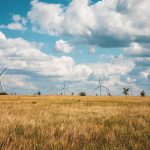Public participation should be a precondition for a green recovery. But the secrecy surrounding the decision making process around the National Recovery Plans casts doubts over the possibility of building back better.
In a nutshell
- Lack of options for public participation in the Recovery process so far
- Failure to meet the requirements of EU law and the Aarhus Convention
- The risk of a failed opportunity for a better future for all
Details
9 February 2021
Member States are going to invest an unprecedented amount of EU public funds and resources through the Recovery and Resilience Facility (RRF). This is a key opportunity to fight dangerous climate change and reverse nature destruction, while creating much needed quality jobs across Europe.
Yet this can only be achieved through proper citizen oversight over the planning and implementation of the RRF, as well as their contribution to define milestones and targets. On the contrary, new research by Bankwatch and CAN Europe shows that secrecy, rather than transparency, is dominating the process.
According to NGOs’ survey on the preparation of the recovery spending plans, run in 20 EU countries, almost no one is opening the plans to public participation, nor are they being subjected to strategic environmental assessments. In many countries, the draft Recovery plans are yet to become available and public consultations are not planned.
Both public scrutiny and environmental assessments are required by EU law. Treaties like the Aarhus Convention on Access to Information, Public Participation in Decision-Making and Access to Justice in Environmental Matters [2], to which each EU Member States is a party, require public participation for any plan, programme or policy related to the environment. This includes financial and budgetary plans, such as the recovery and resilience plans.
According to the recovery fund legislation, Member States should consult civil society over the investment list, which are due in April. Hopefully member states will be receptive, but there is little time: this is the moment to ensure the needed transformation towards a better society for all. And it cannot happen with citizens left outside.






